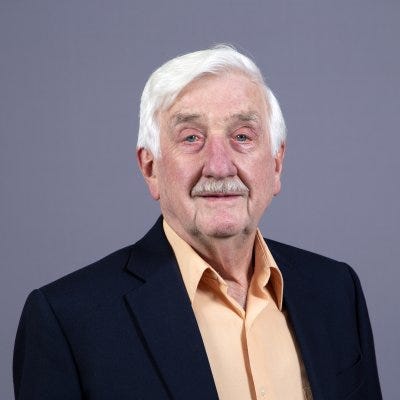(UPDATE: On Tuesday night, the university rescinded its restrictions on Dr. Carpenter. See below for more details.)
You may have already heard about Dr. David Carpenter, the long-time professor and highly esteemed researcher who directs the Institute for Health and the Environment at the University at Albany, State University of New York. Carpenter has focused his life’s work on studying the environmental causes of human disease, authoring more than 400 peer-review publications.
Carpenter has particular expertise in the health effects of polychlorinated biphenyls (PCBs). Because of his research, Carpenter has been a key expert witness for plaintiffs in multiple court cases over PCBs, which were banned in the United States in 1979 because of evidence of their toxicity to humans and wildlife but still persist in the environment. Carpenter’s work as an expert witness has pitted him against Monsanto, the key maker of PCBs before they were banned, and helped lead to hundreds of millions of dollars in payouts to victims of PCB contamination.
Carpenter has been paid handsomely for his testimony, and that is where the issue lies. Rather than use the money personally, Carpenter reportedly arranged for his fees to be directed to research programs for his graduate students and staff - an altruistic move in the eyes of his many supporters.
But Monsanto sees it differently. Seeking to undermine Carpenter’s credibility, Monsanto’s lawyers have filed record requests with the university regarding his funding and accused the scientist of hiding conflicts of interest by funneling the fees he earned for testifying to his research program without proper disclosures.
The questions raised led the university to launch an investigation and to limit Carpenter’s work over the last year, including banishing him from campus and barring him from teaching classes. Now a coalition of supporters are fighting back, calling for an investigation into university administrators who they say are “complicit” with Monsanto in seeking to silence Carpenter. (You can read the story and the complaint filed with the university at The New Lede.)
Supporters of Carpenter are planning a rally at the state capitol building in Albany on Thursday. They have also set up a website to support him, and have launched a petition drive demanding he be fully re-instated at the university.
The university issued a statement Tuesday afternoon saying the issue with Carpenter was a “matter of compliance and is wholly independent of the content of the testimony, the parties to the litigation or the work being performed.”
The university further said that it has a responsibility “to operate with the highest legal and ethical standards, and to follow the law and procedures without undue consideration of external influence and pressure.”
By Tuesday night the university amended its statement to say that Carpenter was “no longer on an alternate assignment and may now teach and conduct research on campus. As is standard, UAlbany and Dr. Carpenter also entered into a Conflict Management Plan to ensure future activities are carried out in compliance with all applicable laws and policies.”
So what do we make of this thorny issue? Certainly, we need veteran scientists to testify about important research in court cases dealing with public and environmental health risks, and we can’t expect them to do that for free. Carpenter’s actions to use the money for research rather than enriching himself seems like a smart and unselfish move. And it seems more than a little ironic that Monsanto is complaining about alleged lack of disclosure and conflicts of interest when the company is a poster child for manipulating research and “ghostwriting” scientific papers. (See this truly outrageous example.)
Additionally, Monsanto has directed millions of dollars to academics and universities over the years to advance and control research to be used to promote its products.
On the one hand, I see a good argument for encouraging money earned through these cases by witnesses to flow to public health research. (Some have suggested that lawyers earning large settlements or verdicts in these public health cases should also put some of that money toward research.) Our country does not provide nearly enough money for this critically important work.
On the other hand, I see how payments from plaintiffs’ attorneys for research that could benefit their own ongoing cases can be seen as a messy conflict of interest and could undermine the validity of the work.
One thing is clear: The spotlight on Carpenter doesn’t encourage other similarly situated scientists to step into the witness box to share what they know about important public health matters. And when scientists are silenced, we all lose.
In a press release, Carpenter described the last several months as his “most frustrating experience in more than 50 years of teaching.”
Hopefully, Carpenter’s ordeal will be resolved soon. But the broader issues remain.





Anyone called to testify should be compensated like we are for jury duty...and NOT a penny more. It's one of the things that can keep people from being able to file a malpractice lawsuit...it can cost more to have a "professional" testify than what the allowed award is in a state for malpractice, despite what was or was not done to the person/patient.
I think his compensation was more than should be allowed, however, he should be able to use that money given to him for whatever he chooses. These universities and pharmaceutical companies are not holding the better interest of Americans, only themselves.
Monsanto pays their expert witnesses. Do they keep track of how that money is spent?